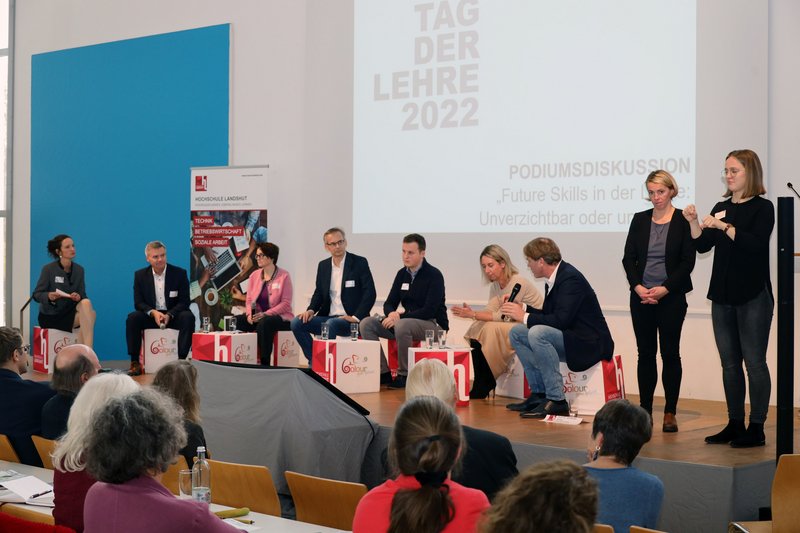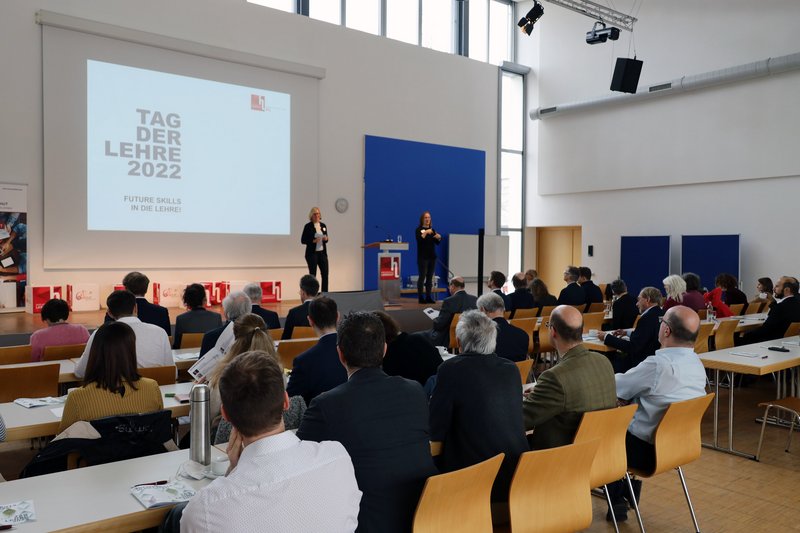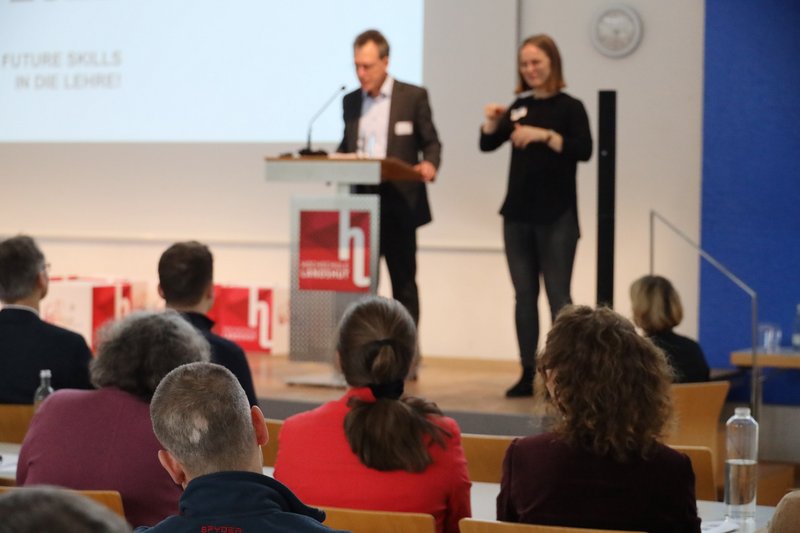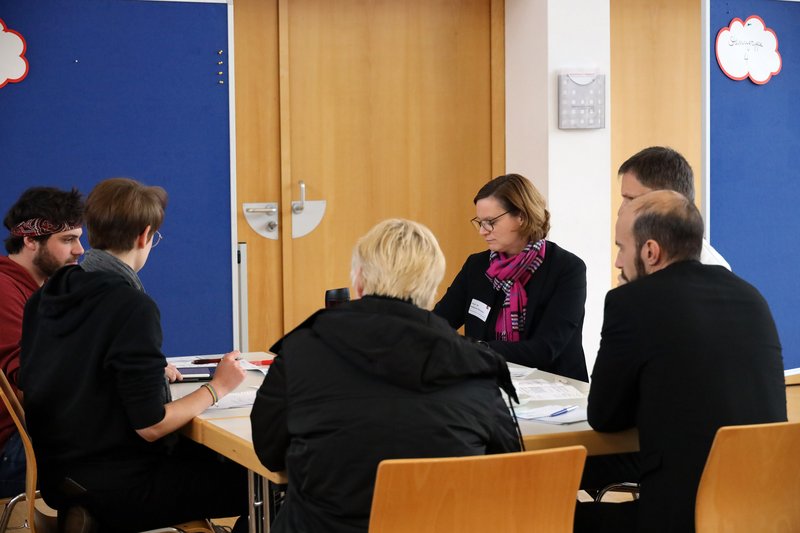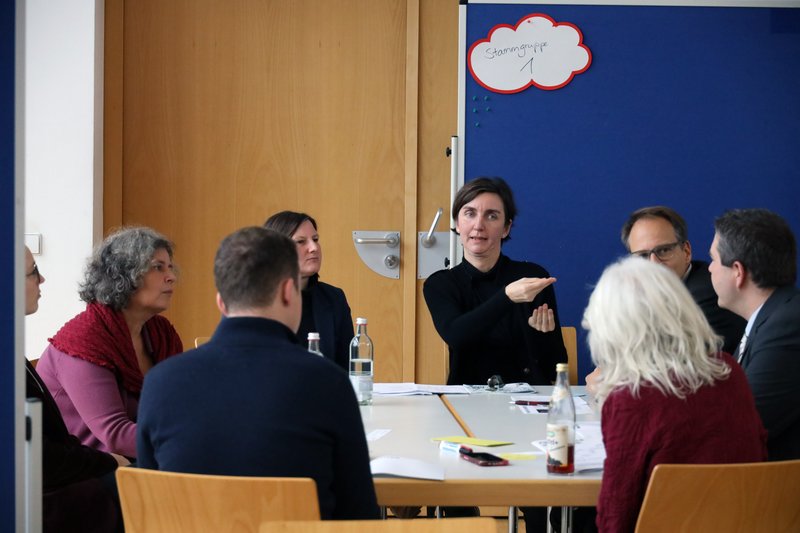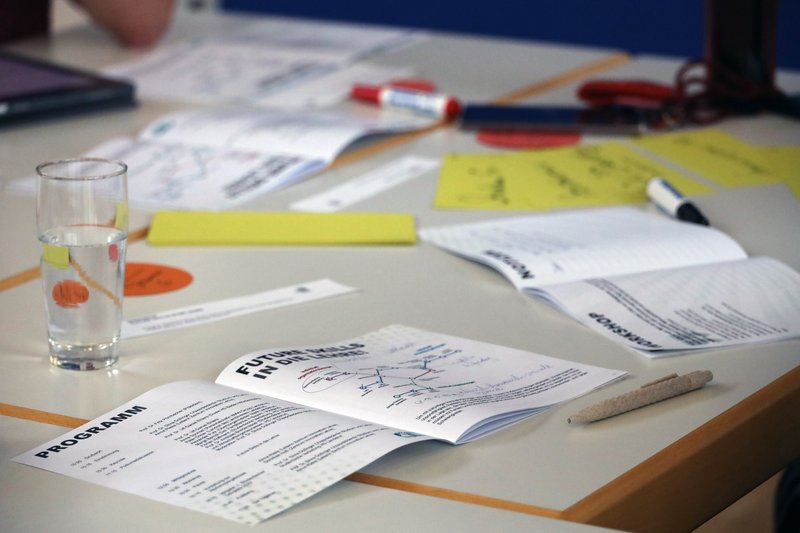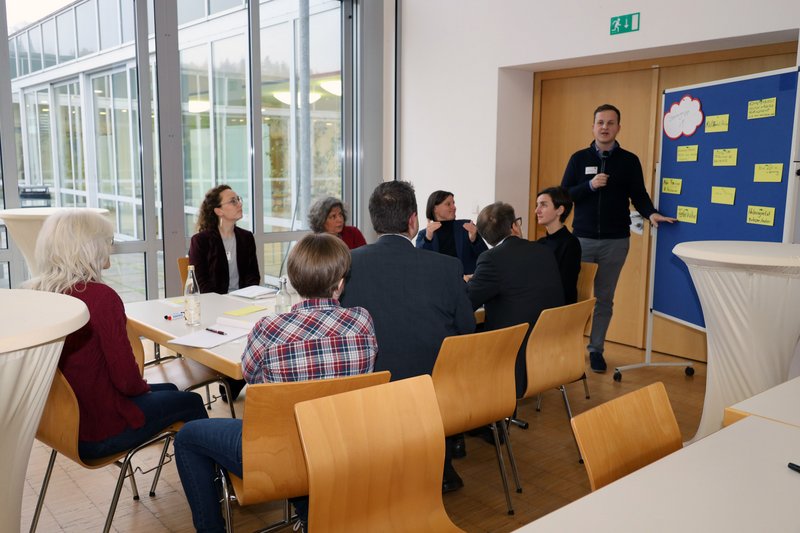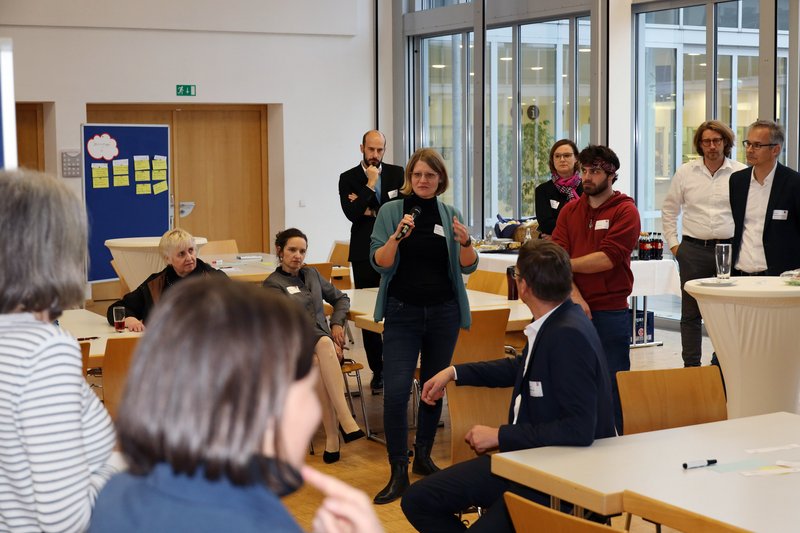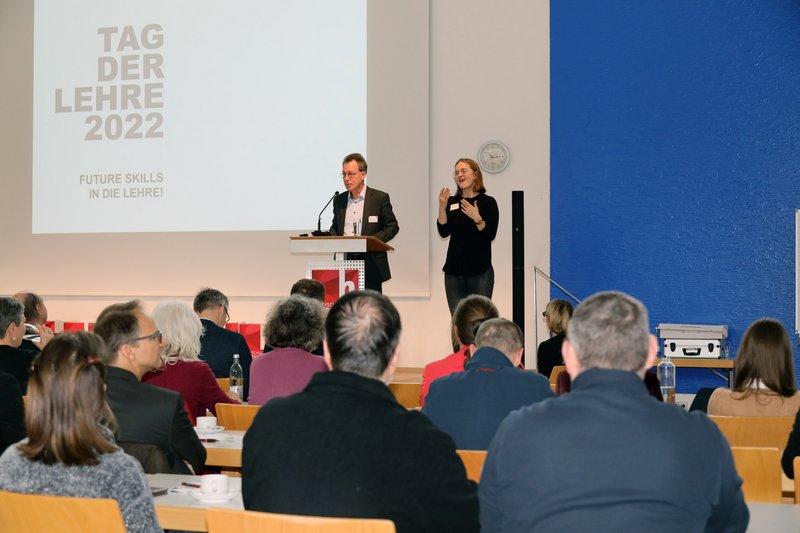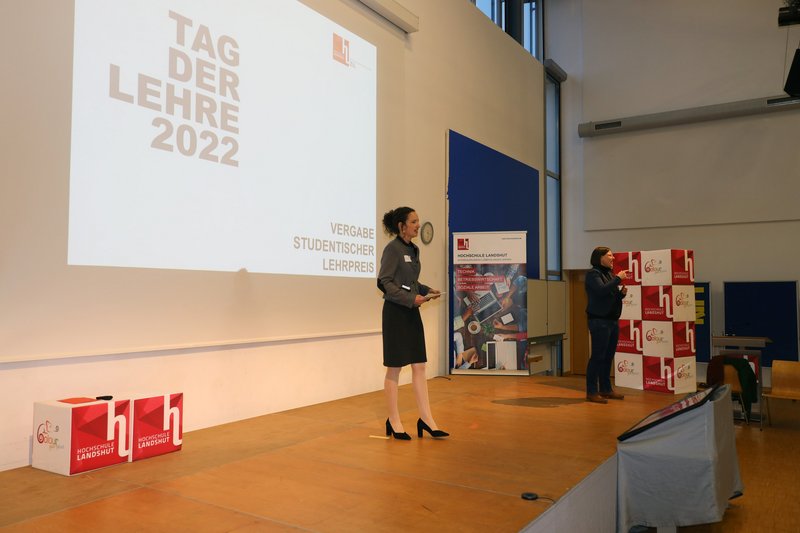Constant change is the new normal – that is at least one of the quintessential features of the Teaching Day which Landshut University of Applied Sciences holds once a year. After two years in a digital format, it was finally possible for the event – this time under a new format – to take place on the campus once again. Prof. Dr. Silvia Dollinger, Vice President for Studies and Teaching, and Almut Rieke, Head of the Centre for Innovative Teaching, and her team, were responsible for the organisation. Both also acted as hosts for the various items on the programme. The Vice President expressed particular thanks to the Friends of Landshut University of Applied Sciences, without whose financial support the event would not have been possible. And she also emphasised its ideas-based support and close links with the university, as made clear by the participation of the members.
The lead topic of the 2022 Teaching Day was “future skills” – meaning the special competences which will be relevant to society, and above all else, the economy of the future, or which are already relevant today. “We are going through a period of upheaval, and higher education must respond to the complex challenges and the transformation of living, educational and working environments,” explained Dollinger. “It is up to universities to actively shape these changes and to take responsibility as higher educational institutions.”
In his lecture, keynote speaker Prof. Dr. Ulf-Daniel Ehlers discussed what exactly is meant by the term “future skills”. He also discussed the question of which specific future skills we should all have for the world of today, and the role that educational institutions have to play in imparting them. Ehlers is Professor of Education Management and Lifelong Learning and leader of the NextEducation working group at the Baden-Württemberg Cooperative State University, where he was Vice President from 2011 to 2017.
Longstanding, intensive research
Ehlers and his team have been conducting research into the area of “future skills” for several years. He presented the results gained so far to the attending members of the university and guests from the worlds of business and politics. “Our research has identified a total of 17 future skills profiles,” reported Ehlers. “We can also give these profiles to the students in order to help them rise to the challenges of (working) life successfully.” The profiles include digital competence, ethical competence, innovation competence and cooperation competence.
A subsequent panel discussion addressed which competences in particular are required in society and the economy, etc. The discussion approached this topic from the perspectives of education, society and social issues, region, business and employers, as well as teachers and students. At the discussion hosted by the Vice President for Studies and Teaching, Prof. Dr. Silvia Dollinger, these perspectives were represented by Prof. Dr. Ehlers, Anna Sponsel (HR Manager, BMW Group Plant Landshut), District Administrator Peter Dreier, Margit Berndl (Board of the Association of German Welfare Organisations), Florian Hoffmann (Student Representative) and Prof. Dr. Andreas Breidenassel, Dean of Studies for Electrical and Industrial Engineering. The participants agreed on one thing in particular: the ability to change and successfully rise to the challenges of our times is more important than just technical ability. “We are living in a world in which a continuous change of perspective and daily transformation are the norm,” explains Berndl. “That is why, from an employer’s point of view, it is especially important for everyone to be able to adapt quickly,” added Sponsel. Specialist knowledge is becoming outdated more quickly than ever before, but can always be updated through further qualifications. This can’t be achieved with flexibility alone, it has to be learned in life at a young age.
Strengthening resilience at a young age
In this respect, reference was also made to the term “resilience” as a future skill. “We are only prepared for the unknown if we start learning at a young age, initiate processes of transformation, and strengthen our personal resilience,” said Hoffmann, expressing the point of view of the students. The District Administrator agreed: “It is necessary for us to offer training in these skills to our students and trainees, especially in resilience, at as young an age as possible.” In his opinion, there is still room for improvement in this field.
With this food for thought, the participants on the Teaching Day joined a large discussion workshop in which four specific questions were asked: How is the university currently implementing future skills? How can additional future skills be anchored in the teaching on a structural basis? Which future skills in particular are of importance for the differing faculties and courses? What are the challenges in equipping all students with the relevant future skills?
Six workshop rounds with lively discussions
In the six rounds of the workshop and the subsequent discussion, it became clear that future skills are already being taught. In the shape of the Studium Generale a field already exists which is mainly characterised by the teaching of interdisciplinary skills. The participants agreed that there was further potential in this field, however. The members of the university considered the biggest challenge to be the highly detailed curriculum, which needs to streamlined in certain areas in order to provide more space for the topic of “future skills”.
As the Teaching Day drew to a close, the programme included presentation of the student teaching prize in gold and silver for the first time. The students were able to nominate a candidate from each faculty. Prof. Dr. Valentina Speidel (silver) and Prof. Dr. Hubert Klaus were the happy recipients of the prizes (separate report follows).
Photos: Landshut University of Applied Sciences
(free to use where source is indicated)

